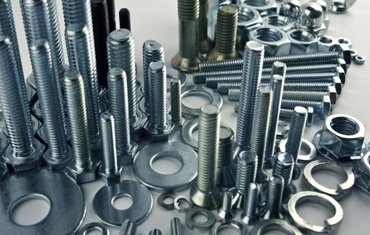Stainless steel bolts are fasteners made from stainless steel, a corrosion-resistant alloy that contains a minimum of 10.5% chromium by mass. The chromium content forms a passive oxide layer on the surface of the metal, which protects it from corrosion and gives stainless steel its characteristic shine.
There are various grades of stainless steel bolts available, each with its own specific properties and applications. Here are some commonly used stainless steel bolt grades:
- Stainless Steel Grade 304 (A2): Stainless Steel 304 Bolts is the most common stainless steel grade used for general-purpose applications. It offers good corrosion resistance, excellent formability, and moderate strength. It is suitable for indoor and outdoor applications in non-corrosive environments.
- Stainless Steel Grade 316 (A4): Stainless Steel 316 Bolts contains molybdenum in addition to chromium, providing increased corrosion resistance, especially against chlorides and acids. It is commonly used in marine environments or applications involving exposure to chemicals or saltwater.
- Stainless Steel Grade 316L (A4-80): Grade 316L is a low carbon version of 316 stainless steel, which offers improved weldability and corrosion resistance. The "A4-80" designation refers to the minimum tensile strength of the bolt (measured in MPa).
- Stainless Steel Grade 317 (A4-50): Stainless Steel 317 Bolts contains higher levels of molybdenum and nickel than 316 stainless steel. It offers excellent corrosion resistance in highly corrosive environments and is often used in chemical processing or pulp and paper industry applications.
- Stainless Steel Grade 410 (Martensitic): This grade of stainless steel is a hardened, heat-treatable alloy with good strength and moderate corrosion resistance. It is commonly used in applications where high strength and moderate corrosion resistance are required, such as in the automotive or aerospace industries.
- Stainless Steel Grade 18-8: This refers to a group of stainless steel alloys that contain approximately 18% chromium and 8% nickel. They offer good corrosion resistance and are commonly used in general-purpose applications, although they may not provide the same level of corrosion resistance as grades 304 or 316.
When selecting stainless steel bolts, it is important to consider the specific environmental conditions, such as exposure to moisture, chemicals, or high temperatures, as well as the required strength and load-bearing capacity. Consulting with a fastener specialist or referring to industry standards and specifications can help ensure the appropriate grade of stainless steel bolt is chosen for a particular application.
For More Information : https://www.rawsteelalloys.com





Comments